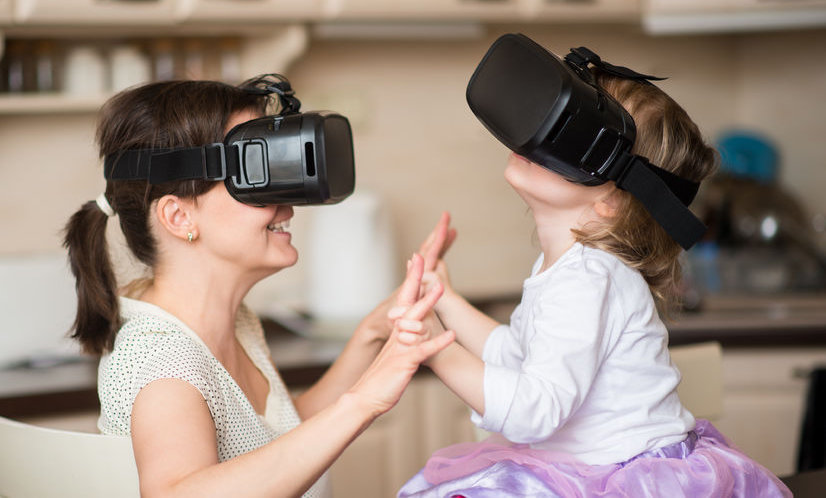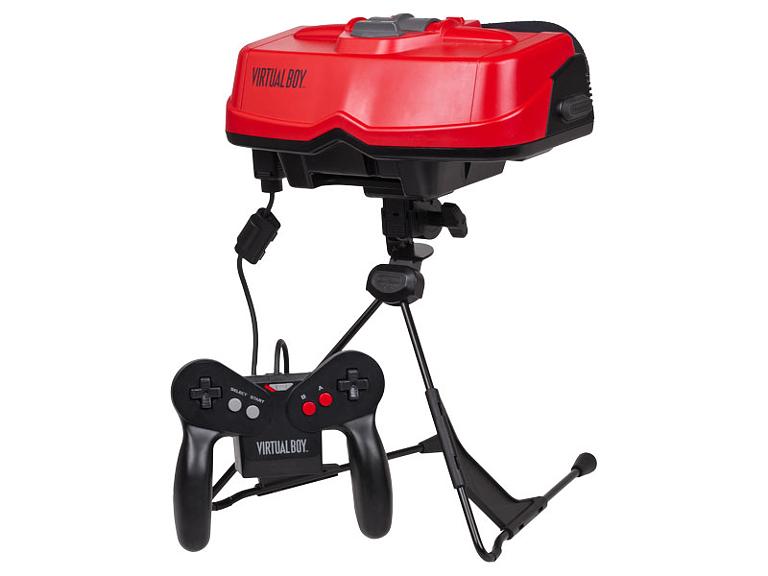How Will Virtual Reality Move into the Mainstream?
Will VR ever move into the mainstream? We think it will, and this is how it will probably happen.
We’re at the very early stages of VR and its possibilities. This we know. Although gamers have been exploring the technology for several decades. And computer scientists (some via games) have been squirreled away in labs, coding and creating fantastic other-worldly experience – whether they’re art, educational tools or simply darned cool toys for re-imagining anything you can think of.
At an awe-inspiring evening of VR exhibits at Goldsmith’s College the other week, we were trying to work out who, amongst the gathering of VR gurus and geeks, could claim they were there at the birth of VR – and when was that? *
In his keynote, Dream Reality Interactive’s Dave Ranyard recalled Nintendo’s Virtual Boy – a very red piece of kit, released in the 1990s. But despite Nintendo’s seeming midas touch at the time, Virtual Boy, was never a commercial hit.
Beyond gaming, VR was then, and still is a niche product. Yes, VR headsets are everywhere, even on offer at the petrol pump, but mainstream adoption beyond gaming is a dream that seems a long way off.
Will VR ever really move into the mainstream – and if so, how?
Here’s a theory.
Simulators have long been essential in some industries, airline pilot training for instance. But they’re very expensive. There are other situations where a simulator type experience would be hugely useful, but so far, too expensive, lugubrious or inappropriate to consider. VR could be the solution.
When I was working on Amsterdam’s VR Days conference last autumn, I had a fascinating conversation with Arnout van Raaij at Dutch construction company, BAM. A year on from their first encounter with VR in 2015, BAM has integrated the technology into their workflow. It means that every person involved on a build can visit the building – virtually. The sparks can see where the sockets would be, the plumber can check the piping and the architect can try out some light effects. And the client gets to walk around their new building before a single foundation has been dug. BAM reckons their approach would benefit the entire construction industry.
Where real-life training is a matter of life and death, VR is an invaluable tool: training surgeons to carry out minute, detailed operations, with no risk to a human. Or war zone preparation where charity workers, journalists or the military no longer need to deal in paper-based or imagined hypothetical situations, now they can be there – virtually.
For now, these kinds of VR uses are still only taking baby steps. The opportunities are there – but they’re limited.
The game-changer will be when the huge potential for VR training and simulator applications is realized. Then VR headsets become common in the workplace – maybe even in every workplace. And once that happens, VR headsets will come home in backpacks and briefcases. They become normalized – integrated into our lives at home, like smartphones or ipads. We’ll use them to check in with friends, do homework or join a meeting.
Imagine limbering up with your favourite football team instead of your usual workout routine at the gym. Or dropping in on a cookery class with a top celebrity chef as you start to plan dinner. Or reaching for your headset, instead of painkillers, to take away the pain when you feel a headache coming on. Or popping into your virtual spa, for a ten minute relaxation when you need a quick break…
For now, the ultimate goal of VR developers is to allow you to go somewhere cool, do something amazing and take your friends with you. But, I believe, it’ll only bed into our lives – at work and home – once we start using it for the everyday stuff.
Then the (endless) opportunities become really interesting.
*For the record, there were several claims to the title: ‘the first UK produced VR game’. To avoid legal suits, we’re not going to list the contenders here. Suffice it to say, they date from the dark ages of gaming, when every developer was a forever-teenager with a translucent skin from too many hours glued to a computer screen in a dim, dingy bedroom…



